Solar Electricity for the Developing World — 2017
Villas Mastatal, Mastatal, Costa Rica
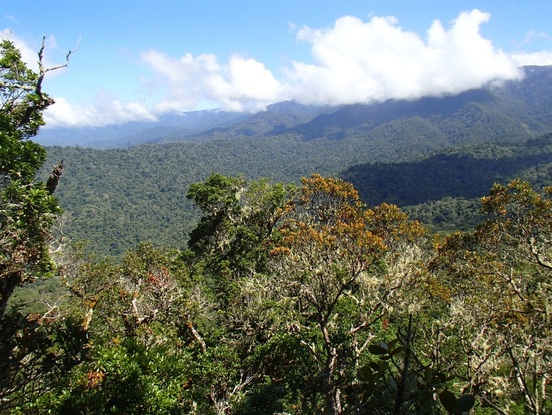
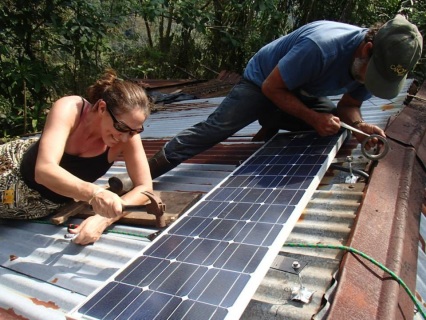
Solar Electricity for the Developing World–2018
Rancho Mastatal, Mastatal, Costa Rica
Learn about solar electricity for the developing world in the developing world!
Learn
Work
Contribute
Explore
Relax
March 11-19, 2017
Villas Mastatal, Mastatal, Costa Rica
$1,625
Mastatal, Costa Rica
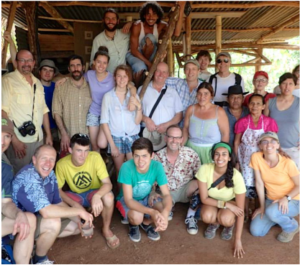 US $1,625 includes:
US $1,625 includes:
• Instruction, tools, and materials
• In-country transportation
• Dorm lodging
• Three delicious meals a day
• Enjoyment of trails and reserve facilities
Hands-on Learning
Learn about solar electricity for the developing world in the developing world! This workshop provides an introduction to stand-alone solar-electric (PV) system design and installation, with a focus on small, rural systems. The workshop combines classroom sessions with a strong emphasis on real-world projects in the community, along with hands-on labs. You will have the opportunity to understand, design, and install lighting and cell-phone-charging systems that can dramatically improve the living conditions of the local people. This is an experiential program, with a real-world focus. Come and learn the basics of simple, stand-alone solar-electic systems for rural people by doing, sharing, and experiencing on projects in the developing world
 Topics include:
Topics include:
o Basics of Electricity
o Meters
o PV System Terminology & Components
o Designing for System Efficiency
o Energy Efficient Appliances
o Safe Installation
o PV Cells, Modules, & Arrays
o Series/Parallel Principles
o Solar Site Analysis
o Orientation, Tilt Angles, & Shading
o Mounting Options and Hardware Selection
o Batteries
o Controllers
o Inverters
o Wiring, Overcurrent Protection, Disconnects, & Grounding
o Technology Transfer in the Developing World
For millions of poor, rural people around the world, solar electricity may provide the first electric lights a family has seen, replacing darkness at sunset with the opportunity to read, study, or recreate after a day of work. This hands-on workshop teaches how give this amazing technology to the people who are most in need. In the classroom portion, workshop participants will gain a basic understanding of the principles of small, stand-alone solar-electric systems and their design and installation. In labs and in three real-world installations, participants will learn in by doing, while helping improve the lives of local people.
Our program is focused on learning through hands-on work. We’ll spend about one-third of our time in the classroom, studying solar electricity technology basics. The rest of our time will be in the field or lab, getting our hands dirty, learning by doing. The course is taught in both English and Spanish. Price includes dorm bed, all meals and in-country transportation. Ask about options for family members not taking the workshop.
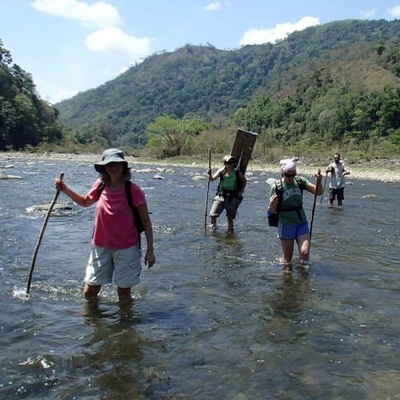
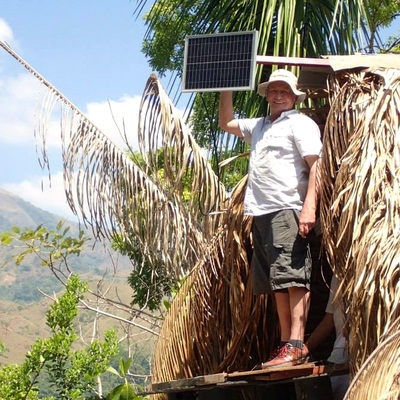
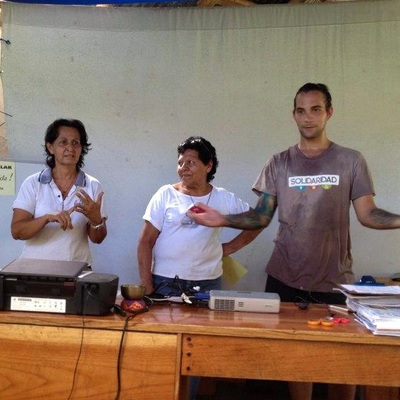
Villas Mastatal
Villas Mastatal is an integral educational organic farm of 20 hectares (about 50 acres) of amazing forests, rivers, waterfalls, and natural resources, located just outside La Cangreja National Park and a 20 minute walk from the remote village of Mastatal in Costa Rica. Villas Mastatal is a traditional Costa Rican farm and has been family owned and operated since the 1970s. It is now an educational and environmental conservation project where groups of students, volunteers and visitors can learn the day to day running of a tropical organic farm.
Our workshop schedule is designed to give you time to enjoy the beautiful surroundings and people of Mastatal. We try to take a two-hour lunch/siesta break in the middle of each day, and we take the middle day of the workshop off from our project work and study, to go on
recreational or cultural trips in the area. Our past groups have experienced an educational, exciting, and inspiring time while having fun with a great group of people.
In addition, Villas Mastatal and the community of Mastatal have fine examples of:
• Sustainable agriculture, forestry, and living
• Small renewable energy systems
• Micro-enterprise and ecotourism
• Composting and biodigester toilet and wastewater management systems
• Nature study and awareness
• Natural building
• Medicinal plants & indigenous skills
Lodging & Food at Villas Mastatal
Your workshop fee includes dorm lodging, all meals (primarily vegetarian, and sumptuous), and in-country transportation. Please see www.villasmastatallcr.com for more information about the farm, its facilities, and mission.
Costa Rica Language and Culture
 Costa Rica is a Spanish speaking country. However, in many places you will find people who speak some or plenty of English, and it is quite possible to get along with minimal Spanish. The people are used to tourists, and are very helpful. We recommend that you invest some time in learning at least some basic Spanish to facilitate your journey, and out of respect for the local people. Lonely Planet’s Costa Rica Spanish Phrasebook is an excellent, inexpensive introduction to the language. Our workshop will be taught in English, with Spanish translation for local participants if necessary.
Costa Rica is a Spanish speaking country. However, in many places you will find people who speak some or plenty of English, and it is quite possible to get along with minimal Spanish. The people are used to tourists, and are very helpful. We recommend that you invest some time in learning at least some basic Spanish to facilitate your journey, and out of respect for the local people. Lonely Planet’s Costa Rica Spanish Phrasebook is an excellent, inexpensive introduction to the language. Our workshop will be taught in English, with Spanish translation for local participants if necessary.
Ticos, as Costa Ricans are often called, are generally easy-going, open, helpful, and fun people. The country’s tranquil nature shows through in all aspects of the culture. Since 1949, the country has been without any armed forces. Costa Rica, despite its relatively small size, has an incredibly diverse geography. A series of volcanic mountain chains run down the center of the country. The highest point is Cerro Chirripó, which reaches 3,820 meters high, rivaling some of the taller mountains in the United States. The variety of flora and fauna found throughout the country is remarkable for a country so small. It is a nature lover’s paradise. The majority of people are white, with smaller percentages of blacks and Indians. Though not quite as “advanced” as the United States, Costa Ricans enjoy a life expectancy similar to that of Americans, perhaps a result of a more laid back lifestyle, and a healthy dose of fish, rice, and beans.
What to Wear & Bring
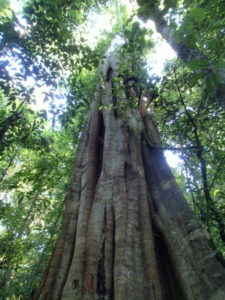 Costa Rica in March will be warm, humid, and probably dry. We recommend traveling as lightly as possible. Resist the temptation to bring everything you think you might possibly need. Light, long sleeved shirts and pants are recommended for sun, insect protection, and evening use. In the tropical climate, darker clothes will make you hot and attract bugs. Bring plenty of underclothes, and clothes that dry easily. Heavy jeans are thick and take an extremely long time to dry in the humid, tropical climate where you will be staying.
Costa Rica in March will be warm, humid, and probably dry. We recommend traveling as lightly as possible. Resist the temptation to bring everything you think you might possibly need. Light, long sleeved shirts and pants are recommended for sun, insect protection, and evening use. In the tropical climate, darker clothes will make you hot and attract bugs. Bring plenty of underclothes, and clothes that dry easily. Heavy jeans are thick and take an extremely long time to dry in the humid, tropical climate where you will be staying.
Bring a good hat to shade your eyes and forehead and to keep your head dry if it rains. If you are light skinned or very heat sensitive, bring a wide brimmed hat. You will be in a tropical forest, and we will be doing physical work, so make sure you bring a pair of shoes that you don’t mind getting dirty. Rubber boots are very popular in Costa Rica, and can be purchased in country if necessary. Work gloves will be handy for protection from blisters, stones, dirt, and plants. A local family is available to do laundry for a fee, or folks can do their own in one of the outdoor sinks/basins.
Here is a list of smaller items that you may find useful:
• Small flashlight with spare bulb and batteries (rechargeable)
• Travel alarm clock or watch
• Swiss Army-style pocketknife
• A section of cord or line (clothesline or for a thousand other purposes)
• Sewing kit
• Sunglasses (good ones as the sun is very, very strong)
• Toiletries (use soaps, shampoos and toothpastes that are biodegradable)
• Sunblock (don’t skimp on sunblock, and use the biodegradable type)
• Insect repellent
• Water bottles
• First-aid kit
• Prescription medicines (many are available cheaper in Costa Rica, but don’t take your chances)
We recommend that you carry your gear in a large, internal frame backpack. It’s less tiresome to carry your load on your back, although you have to be aware when in crowded places. Make sure that you choose a good quality pack that won’t rip, break or become damaged in any way as it may get “tested.” In addition, a smaller backpack is useful when doing shorter day hikes.
Travel
 For this workshop, we will be meeting and traveling as a group once participants arrive in San Jose, Costa Rica. You will need to make your own arrangements to fly into the Juan Santamaría international airport (SJO) in Alajuela, the primary international airport in Costa Rica, which is approximately 17 kilometers west of San José. If you are willing to carry some gear with you from the states, please contact me.
For this workshop, we will be meeting and traveling as a group once participants arrive in San Jose, Costa Rica. You will need to make your own arrangements to fly into the Juan Santamaría international airport (SJO) in Alajuela, the primary international airport in Costa Rica, which is approximately 17 kilometers west of San José. If you are willing to carry some gear with you from the states, please contact me.
Participants must arrive at the San Jose, Costa Rica airport (airport code SJO) on or before March 11, 2017, and be ready for our departure on our bus by 3:00 p.m. sharp on March 11th. We will travel then travel directly by charter bus to the Villas Mastatal in remote Costa Rica. Please plan your flights accordingly, with leeway for the vagaries of travel. If you miss the bus, you will need to make their own arrangements to get to Mastatal, which is remote and not easy to reach. Our bus will return the group to the San Jose airport by 11:00 a.m. on March 19th.
If you need to stay extra nights in the San Jose area on either end of your trip, or want ideas for other travel within the country, we can give you advance advice, or talk while we are together at Villa Mastatal.

Solar Electricity for the Developing World–2018
Rancho Mastatal, Mastatal, Costa Rica
Learn about solar electricity for the developing world in the developing world!
If you can’t join us in person, you can still support
the program with your financial contribution.
Donations help purchase tools and materials
for workshops in the Mastatal community.
Donations of any amount are appreciated.
Cancellation Policy: If a workshop is cancelled (rare), you will receive a full refund. If you cancel more than 90 days before start of workshop, you will receive a 75% refund; 30-90 days before workshop, 50% refund; less than 30 days before start of workshop, no refund.
Program information and logistics:
Ian Woofenden, Workshop Coordinator
PO Box 1001, Anacortes, WA 98221
360-770-1520
ian@renewablereality.net
